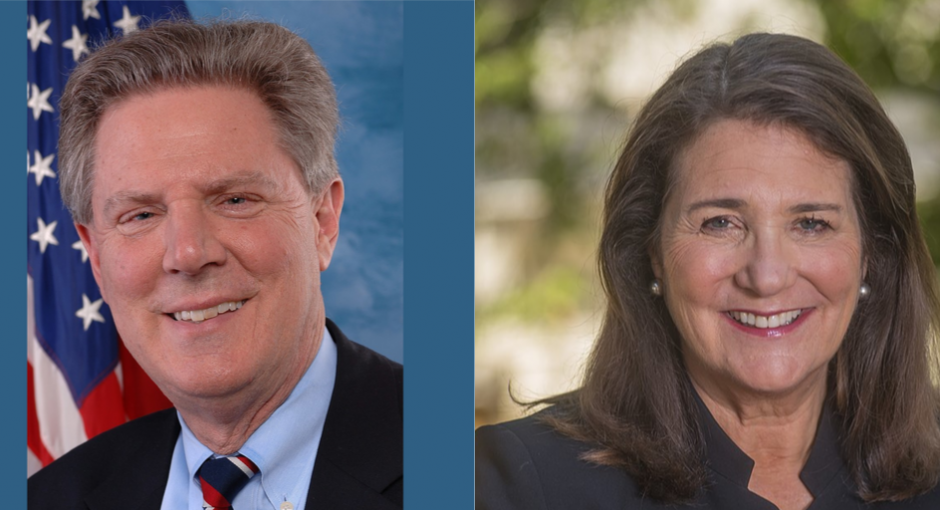U.S. House Energy & Commerce Committee Democratic leaders have sent letters to three major drug manufacturers demanding an explanation for the skyrocketing price of insulin. The E&C Committee has jurisdiction over the 340B program and plays an instrumental role on drug pricing policy.
E&C full committee chair Frank Pallone (D-N.J.) and Oversight and Investigations subcommittee chair Diana DeGette (D-Colo.) sent the letters to insulin manufacturers Eli Lilly, Novo Nordisk, and Sanofi last week. Pallone and DeGette sent the three companies letters in January 2019 requesting information on the root causes of the rising cost of insulin. DeGette’s subcommittee health a hearing on insulin affordability three months later.
In each of the Aug. 19 follow up letters, Pallone and DeGette told Lilly, Novo Nordisk, and Sanofi’s leaders that the E&C committee “is troubled that despite your company’s expressions of shared concern, insulin prices in the United States remain unacceptably high.” Pallone and DeGette gave the companies until Sept. 17 to provide information about their insulin prices, revenues, and expenses.
Pallone and DeGette’s letters do not address the 340B program. However, they come at a time when Lilly, Novo Nordisk, and Sanofi are suing the federal government over 340B. The three companies say the 340B statute does not compel them to provide 340B discounts when entities use contract pharmacies. Three other drug companies—AstraZeneca, Novartis, and United Therapeutics—have filed similar lawsuits. Two more companies, Boehringer Ingelheim and Merck, recently adopted policies like the six others’ ending or imposing conditions on 340B discounts when entities use contract pharmacies.
In late July, upstate New York health center Mosaic Health filed an antitrust class action against Lilly, Novo Nordisk, Sanofi, and AstraZeneca, accusing them of conspiring to raise prices by ceasing 340B pricing on drugs shipped to contract pharmacies. AstraZeneca makes non-insulin diabetes medicines.
Pallone and DeGette’s letters noted that the average list price for insulin is more than 10 times higher than in 33 other countries.
Despite being on the market for decades, the average list price for insulin has increased 11% annually between 2011 and 2018, according to the American Action Forum, a conservative think tank that is generally friendly to the pharmaceutical industry. A year’s supply of the drug can cost $6,000 or more.
Pallone and DeGette asked Lilly, Novo Nordisk, Sanofi to provide the following:
- Annual prices, including list and net prices, of all their insulin products since January 2019
- A specific explanation for each price increase
- Gross revenue and net profit for each marketed insulin product since the beginning of 2019
- Any research and development of current or new insulin products since 2019
- Any steps taken to increase patient access to insulin
- Data on patient assistance programs for insulin, including application and enrollment data, average reduction of out-of-pocket spending, and any related tax deductions claimed by the manufacturers
- Specific details on Lilly’s efforts to promote Humalog, its low-cost insulin product.
The committee asked that the materials be supplied by the manufacturers by Sept. 17. A committee spokesperson did not immediately respond to a request for comment.
“We’re aware of the letter from the House Energy and Commerce Committee and look forward to ongoing dialogue with the Committee on policy solutions that support patients,” Novo Nordisk said in a statement it provided to 340B Report, which also touched on the expansion of its programs to make the drug more affordable. Novo did not indicate in its statement whether it intended to comply with the committee’s request.
UPDATE Tuesday, Aug. 24, 2021, 2:45 p.m. ET—Insulin manufacturers Sanofi and Lilly commented today on U.S. House Energy & Commerce Committee Democratic leaders’ requests for information about the companies’ insulin prices, revenues, and expenses.
Sanofi’s Comment
Today the average net price of Lantus, our most prescribed insulin, is below 2006 levels. It’s time that the system works better for these patients. Until then, Sanofi has taken actions on its own to help improve access to our medicines including commercial insurance co-pay programs for our insulins where a majority of patients pay $0 or $10 per fill, our Insulins Valyou Savings Program where all uninsured patients can pay a fixed price of $99 per month, and our patient assistance program which provides free insulin to qualified low- and middle-income patients.
Lilly’s Comment
Insulin affordability is critical to Lilly and the entire diabetes community. Today, anyone is eligible to purchase their monthly prescription of Lilly insulin for $35, whether they are uninsured or use commercial insurance, Medicaid, or a participating Medicare Part D plan. Despite rising insurance deductibles, the average monthly out-of-pocket cost for Lilly insulin has dropped 27 percent, to $28.05, over the past four years. And in the first quarter of 2021, more than 77 percent of people in the U.S. using Humalog—our most commonly used insulin—paid $35 or less for their monthly prescription at a U.S. retail pharmacy.
Lilly is committed to ensuring affordable insulin is available to people who need it. Anyone paying more than $35 per month for their prescription of Lilly insulin can call the Lilly Diabetes Solution Center at (833) 808-1234 or go to insulinaffordability.com to review available options.
(Note: Our last insulin list price increase was in 2017. Our last list price increase for Humalog—our most commonly used insulin—was in May 2017.)


